Featured

Sri Lanka’s recovery must not be a mirage!
Three years ago, Sri Lanka was on its knees. Queues for fuel snaked for kilometres, electricity cuts plunged homes into darkness, and the shelves of pharmacies and supermarkets lay bare. It was not only an economic collapse — it was a collapse of confidence, governance, and faith. People felt abandoned by the very system meant to protect them.
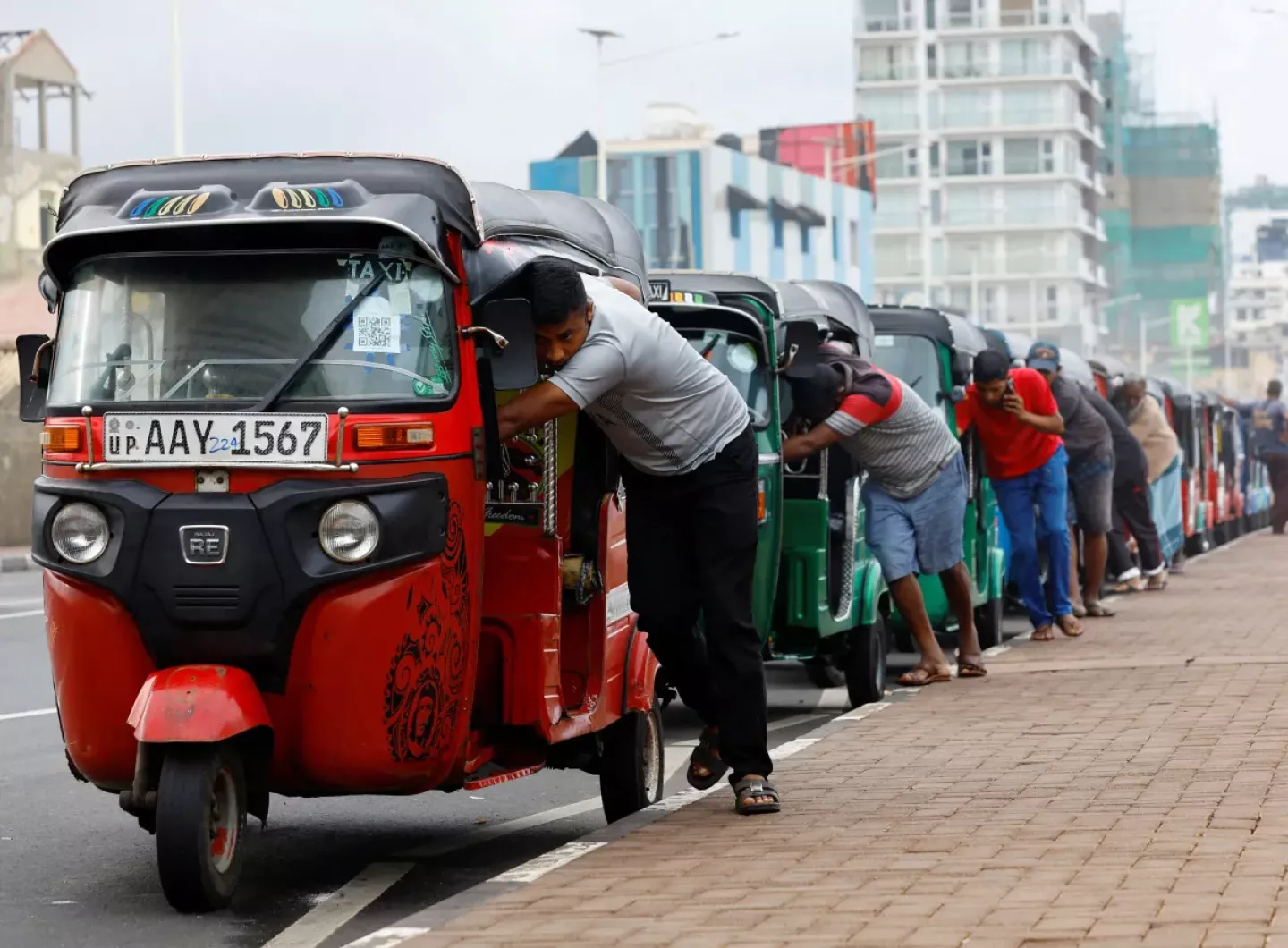
As 2025 draws to a close, the picture looks very different. The economy, once in free fall, is slowly finding its balance. Inflation has cooled, the rupee has stabilised, and foreign reserves are gradually building up again. Tourism has revived, debt restructuring is taking shape, and international partners are back at the table. On the surface, the storm has passed.
But scratch beneath that surface and the question remains. Has recovery really reached the people?
The truth is that this revival did not come from political brilliance or quick fixes. It was built on the resilience and sacrifices of ordinary Sri Lankans who bore the pain of austerity, higher taxes, and shrinking incomes. It was the patience of a public that endured hardship with remarkable calm, even when their confidence in leadership was shattered.
The IMF programme has undeniably helped stabilise the economy. The agreement forced long-overdue reforms — tightening government spending, increasing tax collection, and bringing some transparency to public finances. These were bitter measures, but they restored a degree of trust among lenders and investors. Without that partnership, Sri Lanka would have faced isolation and deeper chaos.
Yet, stability is not the same as prosperity. For millions of citizens, daily life remains an uphill climb. Prices have eased slightly, but essentials are still expensive. Electricity tariffs, transport costs, and food bills continue to stretch household budgets. Many middle-income families have slipped quietly into poverty, and too many parents are still forced to choose between paying school fees and buying groceries.
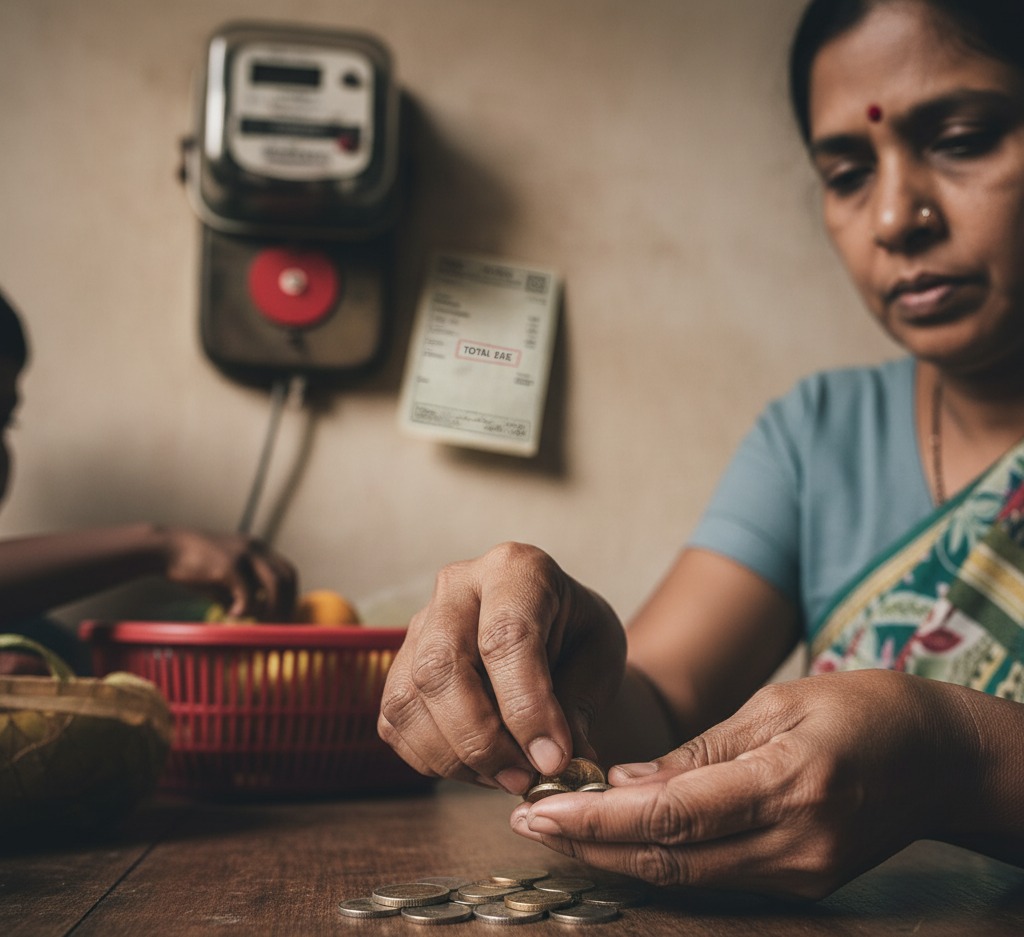
So while the government proudly quotes GDP figures and IMF reviews, the average citizen is still asking a far simpler question. “When will we feel it?”
Debt restructuring was a milestone achievement. Through tough negotiations, Sri Lanka has managed to secure more favourable repayment terms from key partners such as Japan, China, and India. This has eased short-term pressure and given the country a chance to plan ahead. But it also came with strings attached — tight fiscal rules and limited public spending.
Fiscal discipline is vital, yes — but if it becomes an obsession, it risks turning recovery into a numbers game. The goal of reform must not be to please creditors; it must be to rebuild confidence at home. People need to see that their sacrifices are leading somewhere meaningful. Every rupee collected in taxes must be spent transparently and wisely.
There are, thankfully, bright spots. Tourism is slowly coming back, with close to two million arrivals expected by year end. That revival has breathed life into small businesses, hotels, and communities that rely on visitors. But Sri Lanka cannot live on tourism alone. A strong recovery must come from a more diverse and modern economy — one that values technology, innovation, renewable energy, and agriculture just as much as beaches and tea.
The other pressing challenge is the human one. The ongoing brain drain is bleeding the country of its best talent. Young professionals continue to leave in search of stability and opportunity abroad. Reversing that trend will take more than patriotic appeals. It will require real confidence in governance — a belief that hard work is rewarded, that corruption is punished, and that opportunity is equal.

The government in 2025 stands at a crossroads. It can celebrate these short-term wins as political victories — or it can treat them as the starting point for deep, structural reform. This means fixing loss-making state enterprises, strengthening public institutions, and ensuring that social safety nets reach those most in need.
It also means confronting corruption — the cancer that has eaten into every corner of the state. Without accountability, even the most promising recovery will collapse under its own hypocrisy. The people have sacrificed too much to see their efforts wasted by greed or mismanagement.
Ultimately, the measure of Sri Lanka’s recovery should not be found in IMF reports or foreign investment charts. It should be seen in the everyday lives of its people — in the family that can finally afford three meals a day, in the graduate who decides to stay instead of migrating, and in the farmer who earns enough to live with dignity.
Sri Lanka has come a long way from the despair of 2022. But the journey is far from over. Recovery cannot be declared complete until it touches every home, every province, and every citizen.
If those in power forget that, this recovery — like so many before it — will fade into yet another mirage on the horizon.
(Source - Dailymirror)

“5G and the Disappearance of Bees: A Silent Threat to Nature’s Balance”
“As researchers worldwide spark an academic debate, reports suggest that when bees are exposed to the intense electromagnetic radiation emitted from 5G cellular towers, they abandon their hives. A technology designed to connect the world may be silently disturbing one of nature’s most vital pollinators.”
Bees are essential to life on Earth. They are responsible for pollinating more than one-third of the world’s food crops. However, scientists have observed unusual behavior near active 5G towers. Worker bees appear to lose their sense of direction, failing to return to their hives, leading to the collapse of entire colonies. This strange reaction raises serious questions about how modern wireless technology might be affecting the delicate biology of insects.
Preliminary studies indicate that these electromagnetic fields could interfere with the bees’ navigation systems. Bees rely on the Earth’s magnetic signals and subtle vibrations to find their way. When these signals are disrupted, they may become disoriented, wander aimlessly, and eventually fail to return home. While more research is urgently needed, this pattern has become too significant to ignore.
This discovery reminds us that technological progress often carries hidden costs. While 5G enables faster communication, it may also be altering ecosystems in ways we do not yet fully understand. Protecting bees means safeguarding our food supply, biodiversity, and nature’s fragile balance. As science continues to search for answers, one truth remains: without bees, life as we know it cannot thrive. Perhaps it is time to pause and listen to the silence of the hives—and to reconsider the invisible waves filling our skies.


Losing millions in silence: Why Sri Lanka must lift Palm Oil ban now
- Over $ 175 m spent on edible oil imports between 2021 and 2025 when ban on oil palm cultivation first commenced in April 2021
- Total sectoral investment in oil palm cultivation and processing estimated to exceed Rs. 23 b
- Recognising immense potential, Govt. at the time promised to extend tax concessions for establishment of new oil palm cultivation in 2009 and even formally endorsed expansion up to 20,000 hectares by 2016
- Plantation companies say Sri Lanka can revive palm oil sector by lifting the ban and adopting sustainability standards, integrating smallholder farmers, reforming import taxation and investing in R&D and traceability systems
- India has already moved decisively in this direction, expanding palm oil cultivation by 45% in five years with ambitious plans to reach 1.7m hectares by 2030
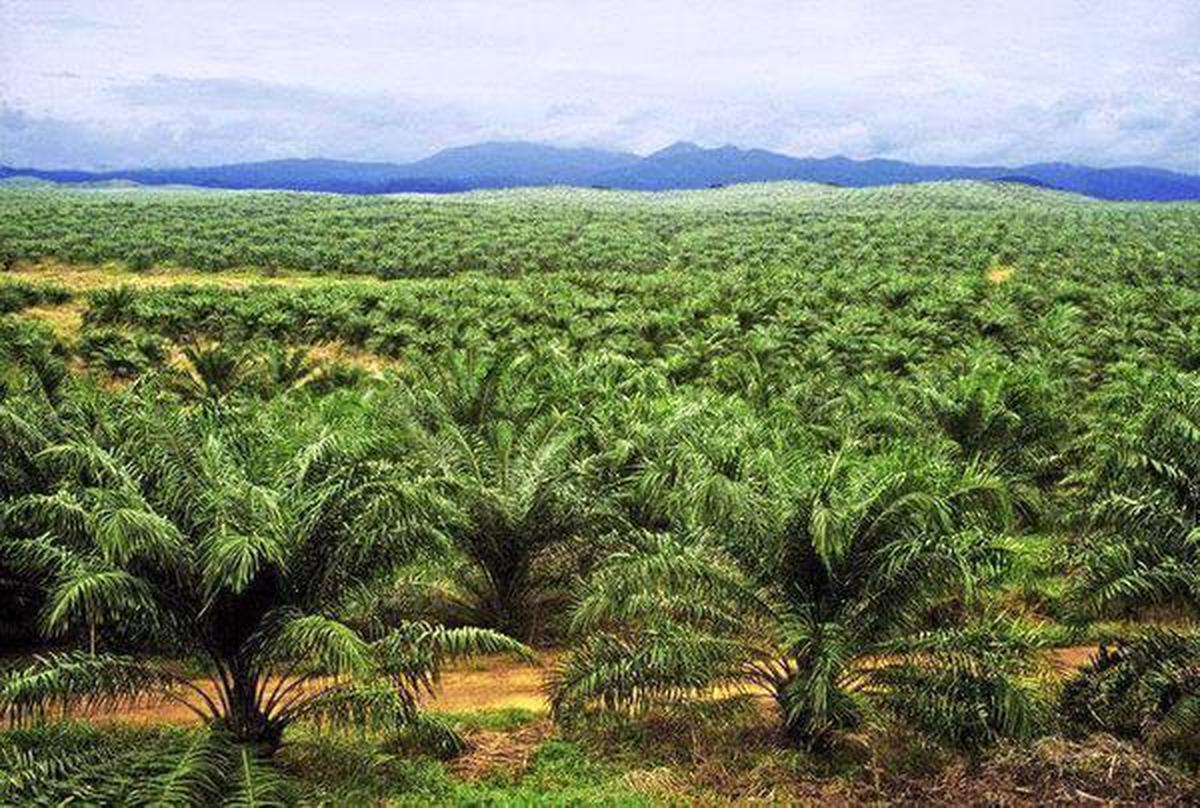
The Planters’ Association of Ceylon (PA) is urging the Government to act swiftly to lift the ban on oil palm cultivation, warning that with each passing day, the losses to the nation keep growing.
The PA noted that an estimated amount of over $ 175 million has been spent on edible oil imports between 2021 and 2025 when the ban on oil palm cultivation first commenced in April 2021.
It also noted that Sri Lanka continues to spend exorbitant sums on foreign exchange for edible oil imports that could have been substantially offset by local production.
Once positioned as a key pillar in the nation’s crop diversification strategy, the abrupt policy reversal in 2021 has stalled progress toward edible oil self-sufficiency and dealt a setback to Sri Lanka’s broader economic recovery.
Palm oil cultivation was first introduced to Sri Lanka in 1968, but only began to gain traction in the early 2000s when Regional Plantation Companies (RPCs) sought alternatives to loss-making rubber. Recognising the crop’s immense potential, the Government at the time promised to extend tax concessions for the establishment of new oil palm cultivation in 2009 and even formally endorsed expansion up to 20,000 hectares by 2016.
Sri Lanka’s annual edible fat and oil requirement stands at approximately 264,000 metric tons. Yet local production meets barely a quarter of this demand, forcing the country to depend heavily on imports.
The result is a recurring foreign exchange drain estimated at around US $35 million annually, with cumulative losses already surpassing US $175 million since the ban was imposed.
Before 2021, local production of palm oil supplied a significant share of the domestic requirement, providing a cheaper and more efficient alternative to imported edible oils. Now, despite the ban, palm oil and related fats continue to enter the market under special import licenses which means Sri Lanka is paying foreign suppliers for products it could easily produce at home.
The RPCs have long argued that oil palm offered the most sustainable route to strengthen Sri Lanka’s plantation economy, diversify income streams and conserve foreign exchange. Palm oil yields three to eight times more oil per hectare compared to traditional oil crops such as coconut or soybean, using less land and fewer inputs. With the right policies in place, Sri Lanka could have achieved near self-sufficiency in edible oils, saving billions in import expenditure while generating new rural employment as well. Instead, the ban has left the sector in limbo, with crippling investments and triggering a chain reaction across multiple industries that depend on affordable edible fats.
Millions lost to imported saplings left unused
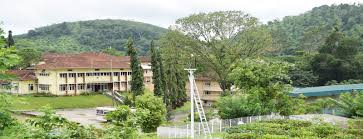 Rubber Research Institute
Rubber Research Institute
Before the policy reversal, the Government itself recognised palm oil’s economic promise. In 2009, hybrid seed imports were granted tax concessions and the Rubber Research Institute was tasked with developing local cultivation technology. By 2016, the state had formally endorsed an expansion of up to 20,000 hectares, limited to marginal and degraded lands to avoid any environmental harm. Encouraged by these clear policy signals, leading plantation companies, including Watawala, Namunukula, Elpitiya, Horana and Malwatte Valley, invested billions in nurseries, mills and research facilities. The total sectoral investment in oil palm cultivation and processing is estimated to exceed Rs. 23 billion. However, In April 2021, the Government abruptly prohibited further oil palm cultivation and the import of crude palm oil.
According to the PA, the value of seedlings and young plants that had to be written off exceeded Rs. 550 million. These were saplings imported at considerable cost, specially bred for Sri Lankan soil and climatic conditions and expected to yield for up to 25 years. Today, those imported saplings lie unused, a clear symbol of policy inconsistency and wasted national wealth.
“The losses from these abandoned nurseries go far beyond what the industry has absorbed” noted PA Secretary General Lalith Obeyesekere. “These were imported assets, paid for in foreign currency. The ban means the Government is now paying more each year to import edible oils that could have been produced locally. It is time to act with pragmatism and vision. Every day the ban remains in place, the country loses money, opportunities and credibility,” he added.
A ripple effect across industries and rural economies
The sector contributed an estimated Rs. 2.5 billion into rural households annually. With the ban, these communities have experienced a sharp decline in incomes, while millers, refiners and downstream manufacturers struggle to manage shortages. The bakery and confectionery industry, valued at over Rs. 200 billion, has faced significant price hikes for inputs such as margarine and cooking oil where costs are ultimately passed down to consumers.
Over 5,000 direct jobs and 21,000 dependent livelihoods were tied to the sector, with oil palm workers earning nearly double the wages of their counterparts in tea and rubber. Ironically, environmental concerns are frequently raised to defend the ban, yet global data tells a different story. Palm oil is the world’s most efficient oil crop, producing 40% of the world’s vegetable oil on only 6% of cultivated land. Countries like Malaysia, Indonesia and even India have embraced palm oil, pairing cultivation with strict sustainability standards such as RSPO, MSPO and ISPO certifications, along with zero-waste and smallholder inclusion models. In Sri Lanka, most oil palm expansion took place on old rubber lands that had already reached the end of their productive life, without any deforestation.

Moreover, palm oil’s role in food security and health is often overlooked. Naturally trans-fat-free and rich in antioxidants and vitamin E, it is recognised globally as a healthier alternative to hydrogenated fats. Both the World Health Organisation (WHO) and the World Wide Fund for Nature (WWF) have acknowledged that, when cultivated responsibly, palm oil remains the most sustainable and scalable solution to the world’s edible oil needs. Substituting with coconut oil undermines a lucrative export industry that earned LKR 63 billion in 2020.
A sustainable future for Plantation industry
The reinstatement of oil palm cultivation could immediately lower Sri Lanka’s import expenditure, generate local employment and restore profitability to the plantation industry, which has struggled under the weight of policy uncertainty. It could also enable the Government to reposition the plantation sector as a modern, export-driven industry, one capable of supporting smallholders, embracing sustainable standards and attracting new investment.
Sri Lanka can revive its palm oil sector by lifting the ban and adopting sustainability standards, integrating smallholder farmers, reforming import taxation and investing in R&D and traceability systems. India has already moved decisively in this direction, expanding palm oil cultivation by 45% in five years with ambitious plans to reach 1.7 million hectares by 2030.
The PA emphasised that the future of Sri Lanka’s plantation industry lies in adopting forward-looking, evidence-based policies and oil palm represents a viable and sustainable alternative for the sector’s long-term growth.
(Source - ft.lk)

This ancestral residence is considered the largest private residence in the world
The illustrious Gaekwad royal family of Baroda lives in a breathtaking ancestral palace valued at over ₹24,000 crore — a residence said to be four times larger than Buckingham Palace. Their inherited wealth exceeds ₹20,000 crore, making them one of India’s richest surviving royal dynasties.
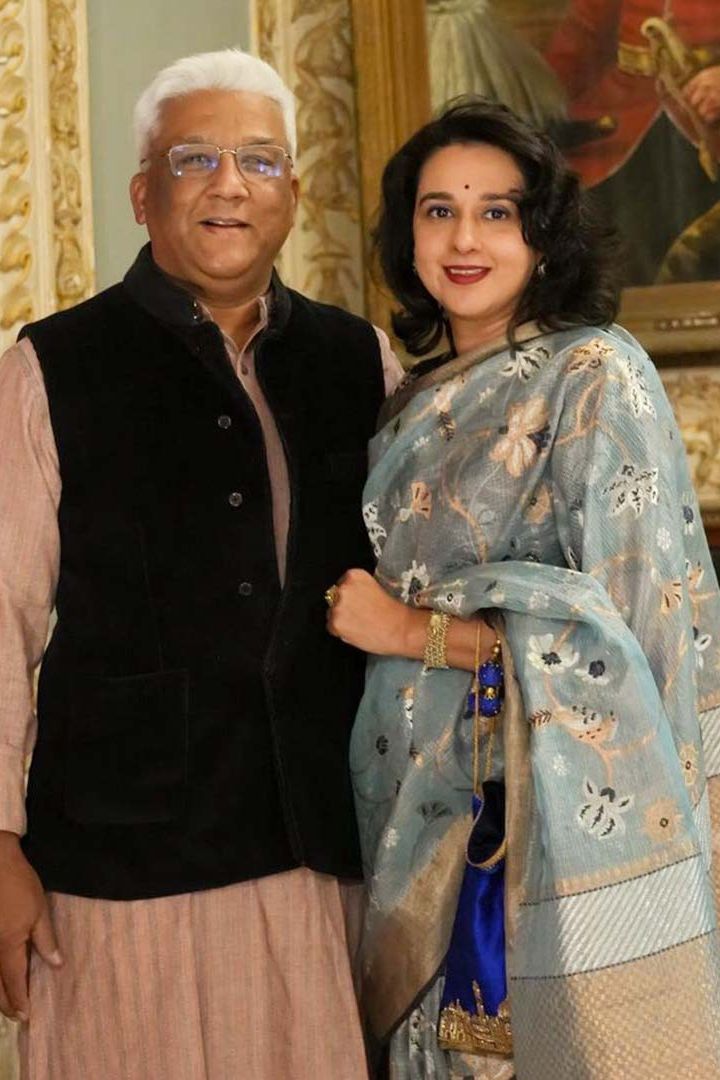
This royal household is currently led by Maharaja Samarjitsinh Gaekwad, head of the Gaekwad dynasty which ruled the princely state of Baroda from the early 18th century until Indian independence in 1947. Today, the family lives amidst a rare blend of preserved imperial heritage and contemporary grandeur — where tradition and modernity seamlessly intertwine.
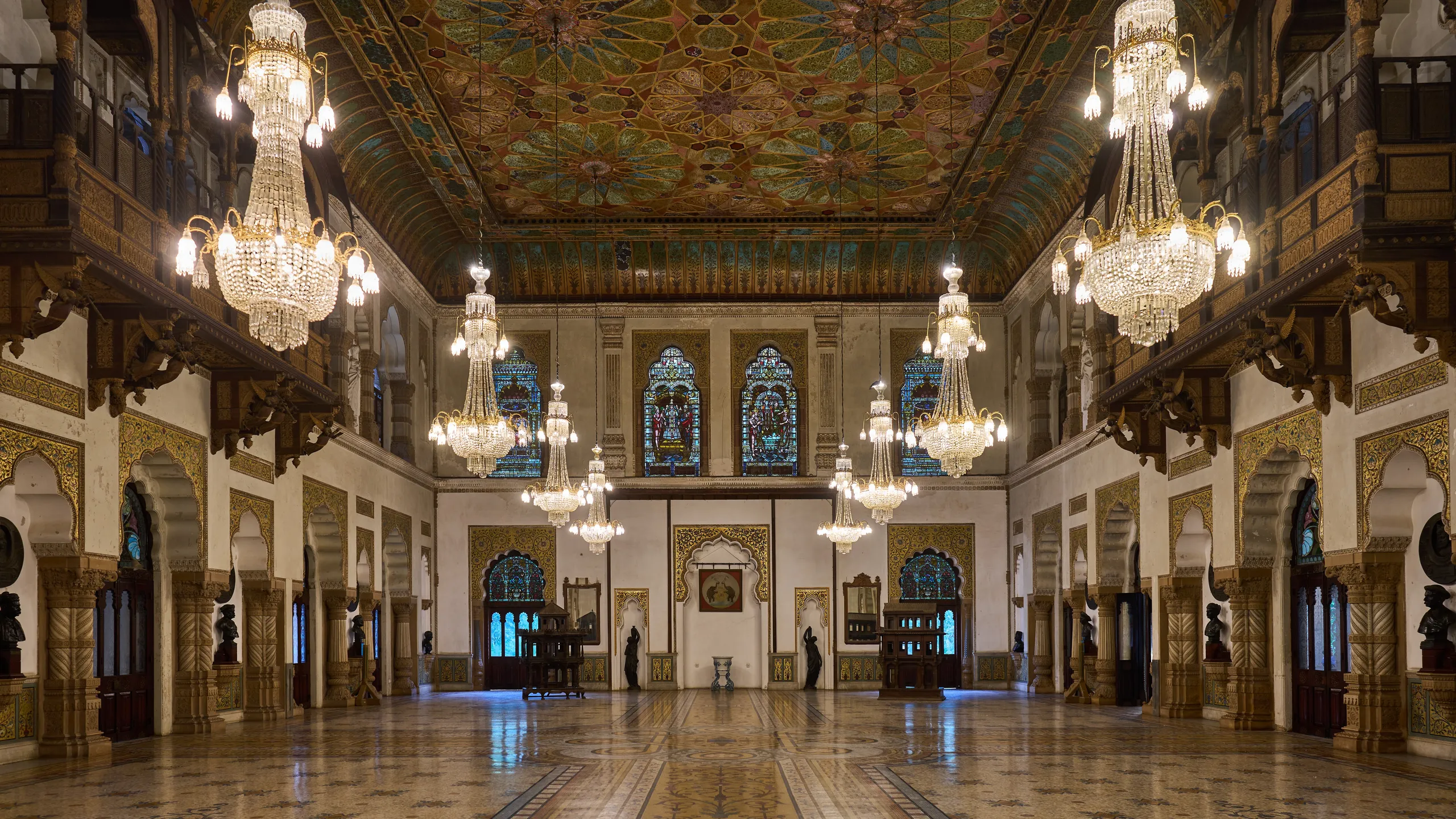
Samarjitsinh ascended the throne in 2012 after the passing of his father, Ranjitsinh Pratapsinh Gaekwad. A former first-class cricketer himself, the Maharaja today serves as President of the Baroda Cricket Association and runs a cricket academy at the historic Motibaug ground. He is married to Radhikaraje Gaekwad, a former journalist and princess of the Wankaner royal family.
Lakshmi Vilas Palace — Larger than Buckingham, Priceless Beyond Imagination
The family resides in Lakshmi Vilas Palace, a 700-acre architectural marvel considered the largest private residence in the world. Built in the 1880s by Maharaja Sayajirao Gaekwad III in Indo-Saracenic revival style, this palace features:
- 170 opulent rooms
- Grand durbar halls and Venetian mosaic floors
- Priceless Ravi Varma paintings
- Antique weaponry and artifacts
- Rare imported stone from Songadh, used in its golden façade
Current estimated value? ₹24,000 crore.
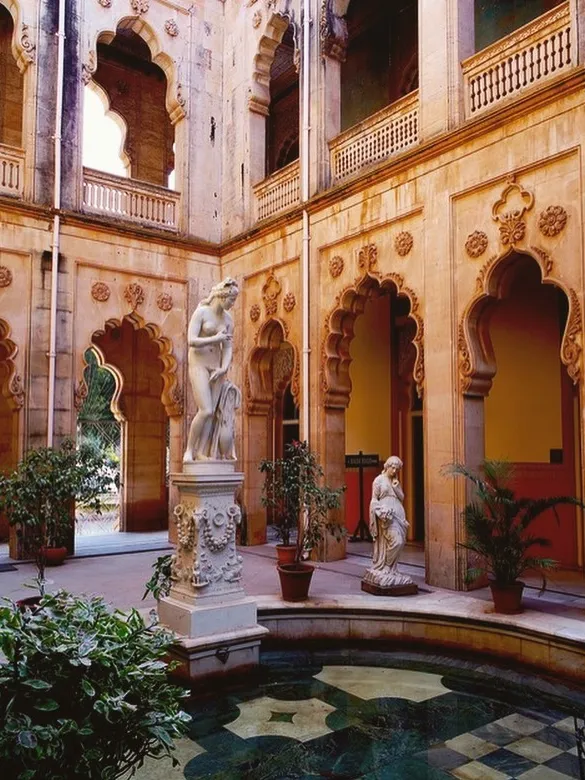
Maharaja Samarjitsinh has even opened parts of the palace for private events under his luxury initiative ‘Lakshmi Vilas Banquets’.
A Legacy of Power, Art & Faith
After settling a long-running inheritance dispute with a family uncle, Samarjitsinh also gained control of:
- 170-acre Lakshmi Vilas Palace estate
- Motibaug cricket ground
- Maharaja Fateh Singh Museum
- Priceless gold, silver and royal jewels
- 17 historic temple estates across Gujarat and Varanasi
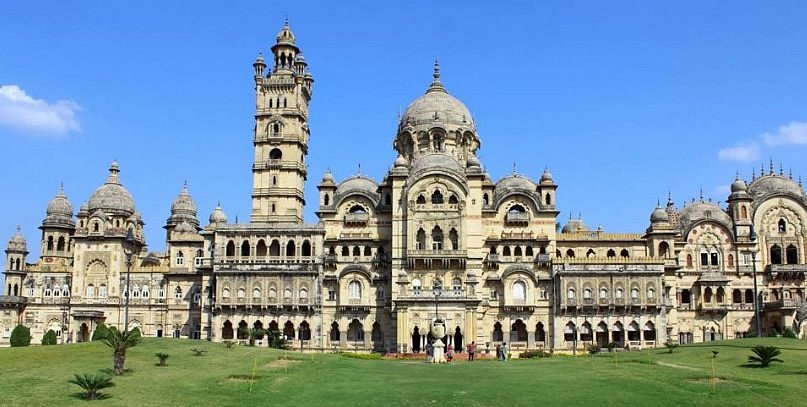
A Fleet of Royal Automobiles
Their royal garage features vintage automotive treasures, including:
- 1934 Rolls-Royce
- 1948 Bentley Mark VI
- 1937 Rolls-Royce Phantom III
- And the legendary 1886 Benz Patent Motorwagen — the world’s first car designed by Karl Benz himself.
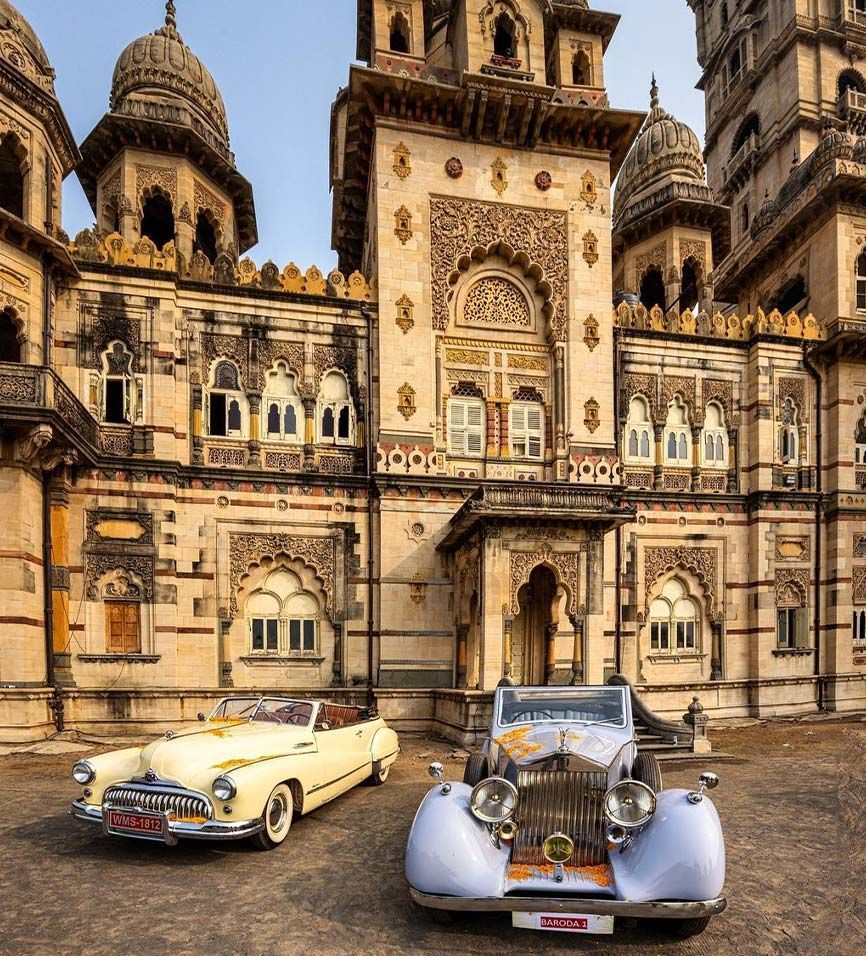
The Fortune
Taking into account their ancestral wealth, land holdings, temples, heirlooms, museum assets, business ventures, and palace revenues — the Baroda royal family holds a net worth exceeding ₹20,000 crore.
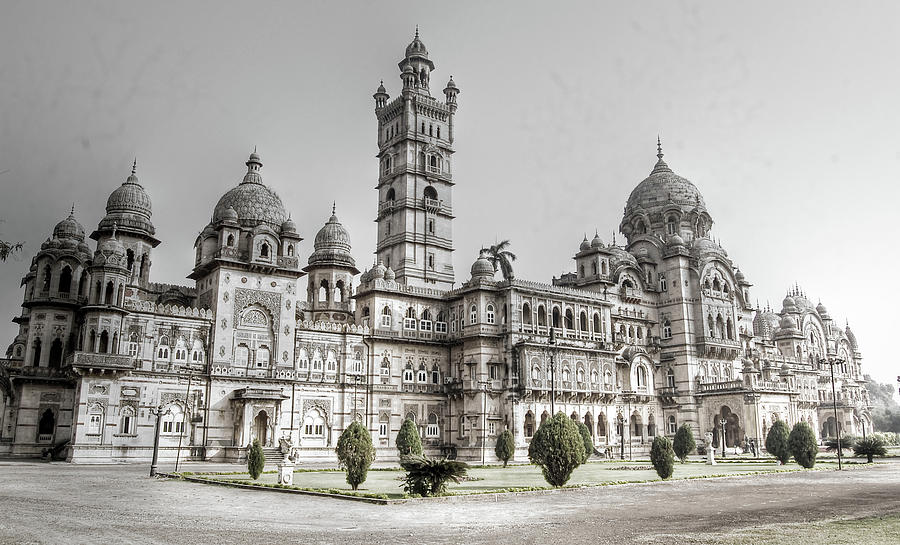 Lakshmi Vilas Palace by Selvin
Lakshmi Vilas Palace by Selvin
Written by Reshni Shanya
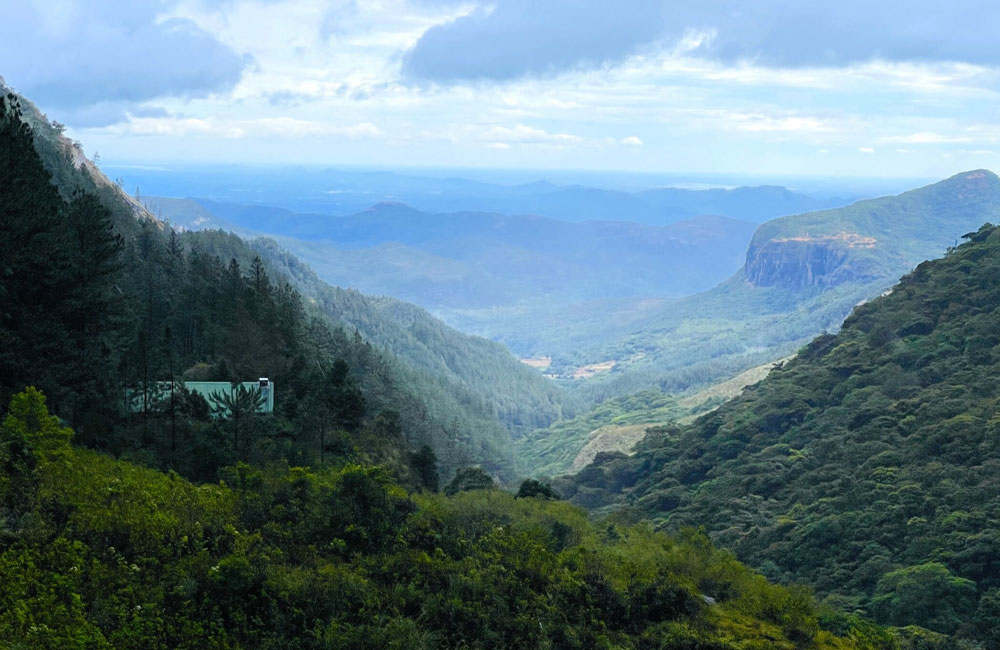
Knuckles World Heritage under Siege: MPs and Officials Behind Illegal Road Plan
In what appears to be a brazen assault on one of Sri Lanka’s most precious ecosystems, government-linked politicians and business interests are advancing illegal access through the Knuckles Conservation Forest a UNESCO-listed component of the Central Highlands of Sri Lanka. Once protected as a biodiversity haven, this range now stands threatened by attempts to carpet and open an 8-kilometre jeep safari route deep within its heart.
Environmentalist Sajiva Chamikara alleges that MPs E.M. Basnayake and Jagath Manuwarna, in collaboration with the Medadumbara Divisional Secretary and local tourism entrepreneurs, have secretly secured approvals to construct and pave a road cutting from Tangappuwa through into the core of the Knuckles range. According to Chamikara, the initiative is being driven not for conservation or community benefit but for commercial safari operations and hotel expansions.
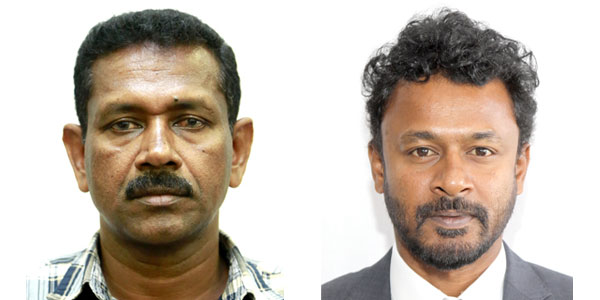 E.M. Basnayake and Jagath Manuwarna
E.M. Basnayake and Jagath Manuwarna
The Knuckles range, declared a World Heritage site for its globally significant biodiversity and status as one of Sri Lanka’s most intact montane ecosystems, is home to unique plant and animal life found nowhere else.
Developers are reportedly targeting the forest trail from Tangappuwa to Corbett’s Gap – slicing through the protected zone – under cover of “tourism development”. A meeting held on 22 August 2025, organised by the Land Use Planning Department at the International Buddhist Centre in Rangala, reportedly approved the plan, with participation by Manuwarna, the Tourism Minister’s private secretary, the Divisional Secretary and the Forest Conservation Department.
Chamikara says that subsequent meetings on 30 September and 30 October 2025, convened by the Divisional Development Committee, further progressed the agenda: hotel owners and safari jeep operators, some implicated in illegal land dealings inside the forest, pitched for vehicle access and road infrastructure. Eventually, it is alleged, Basnayake and the Divisional Secretary granted unauthorised permission to open the forest trail for safari jeeps.
If realised, the impact will be catastrophic. The Knuckles region accounts for more than one-third of Sri Lanka’s endemic flora, and half of its endemic vertebrates.
Ecosystem fragmentation, canopy removal, road construction and carpet surfacing in such a sensitive area especially one bridging wet and dry climatic zones threaten to raise local temperatures, disturb micro-habitats and invite invasive species such as Bovitiya to proliferate. Witnesses warn that the chain-reaction will include wildlife mortality from increased vehicle traffic, habitat loss and ecosystem collapse.
Chamikara charges that the scheme is being orchestrated by local power brokers: led by Ven. Dr. Kendagolle Sumanaransi Thera of the Tangappuwa-Rangala Buddhist Centre, the alliance reportedly includes hotel owner Dixon Tennakoon (Knuckles Base Camp), G.K.G. Gunathilaka (Knuckles Ceylon Bungalow) and several other businessmen, all working in league with political hand-tails and officials. The collusion of money, politics and conservation in this case paints a stark picture of governance failure.
The timing is telling. Under the banner of the government’s “Prosperous Country, Beautiful Life” slogan, the Central Provincial Road Development Authority is already advancing the Theldeniya-Corbett’s Gap road, with the section outside the forest already under development. The eight-kilometre segment inside the reserve, however, remains off official maps—until now.
As Sri Lanka balances tourism ambitions with conservation responsibilities, this story raises fundamental questions: Who protects the protected places? And how will the state account for the wholesale dismantling of a UNESCO-designated treasure? With the Knuckles at stake, the time for scrutiny, transparency and accountability has arrived.
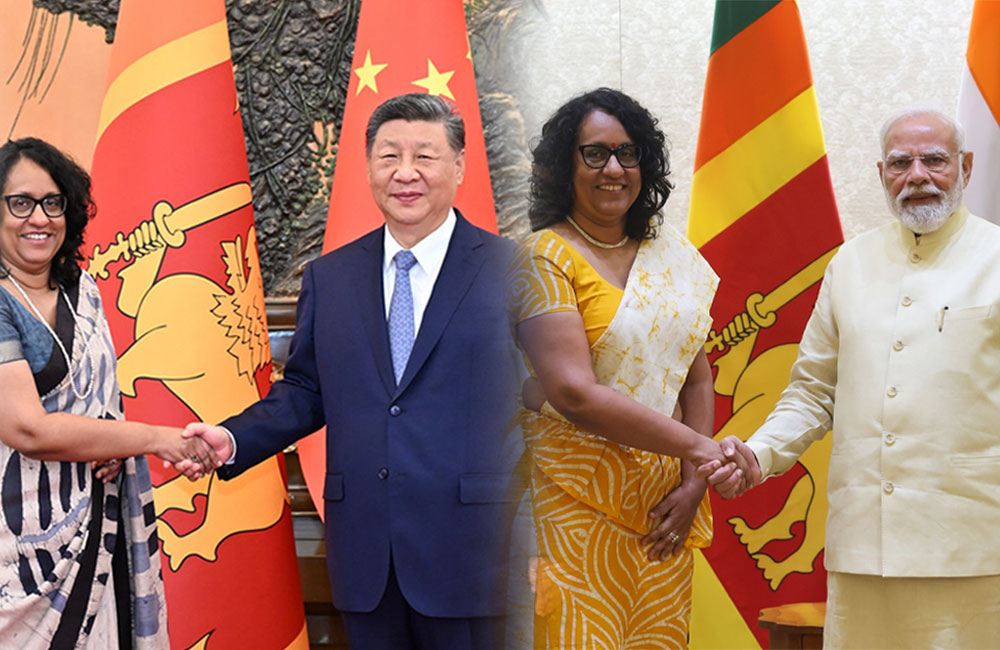
In Beijing and Delhi, Sri Lankan Prime Minister Aimed to Balance Consequential Relationships
Sri Lankan Prime Minister Harini Amarasuriya was in China and India in quick succession, the latest demonstration by the National People’s Power government that it is keen on balancing its two most consequential relationships.
Amarasuriya visited China first. In Beijing, she met Chinese President Xi Jinping on October 14 on the margins of the Global Leaders’ Meeting on Women. During the meeting, China pledged to keep Sri Lanka a priority in China’s neighborhood diplomacy and the two sides emphasized continued cooperation in the port economy, modern agriculture, the digital and green economies, tourism, and sharper law enforcement coordination against cross-border crime. Cooperation with China in these issues is vital for Sri Lanka to achieve its goals, i.e., a port economy that turns ships faster, green and digital infrastructure that narrows the import bill, and agriculture and tourism value chains where Chinese technology and financing can raise productivity. It is also not surprising that the two sides discussed law enforcement. Cracking down on cross-border fraud, cybercrime, and illicit finance is vital to an economy trying to rebuild credibility with lenders and voters. These align with the government’s drive to improve governance while enhancing infrastructure, making the country a more attractive destination for investments.
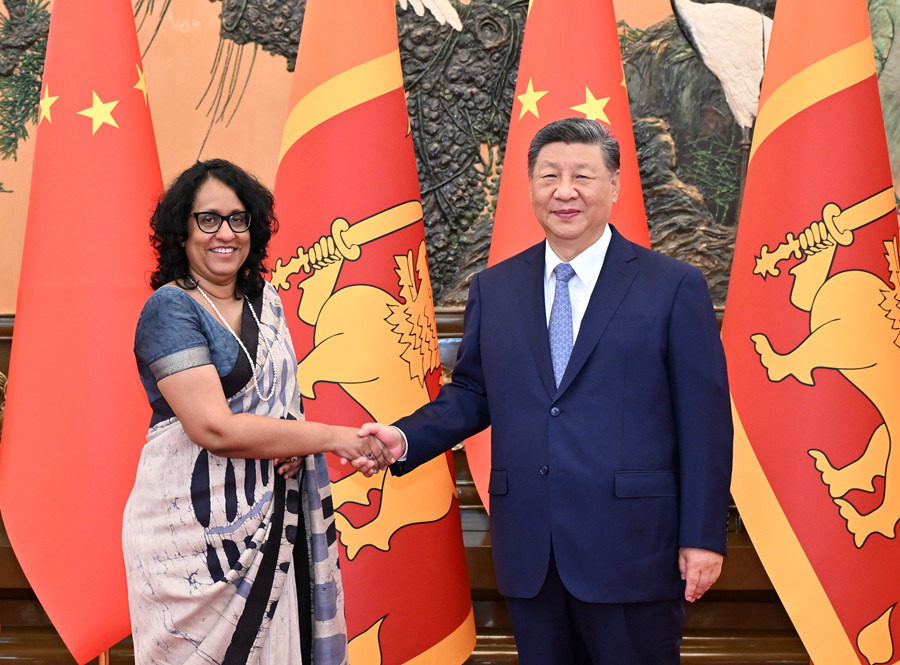
In Delhi, Amarasuriya shared the stage at the NDTV World Summit 2025 with Indian Prime Minister Narendra Modi and ex-British leaders Rishi Sunak and Tony Abbott; visited her alma mater, Hindu College, where the school inaugurated a new research facility named the “Harini Amarasuriya Social & Ethnographic Research Lab” and posed with her friends and fellow academics.
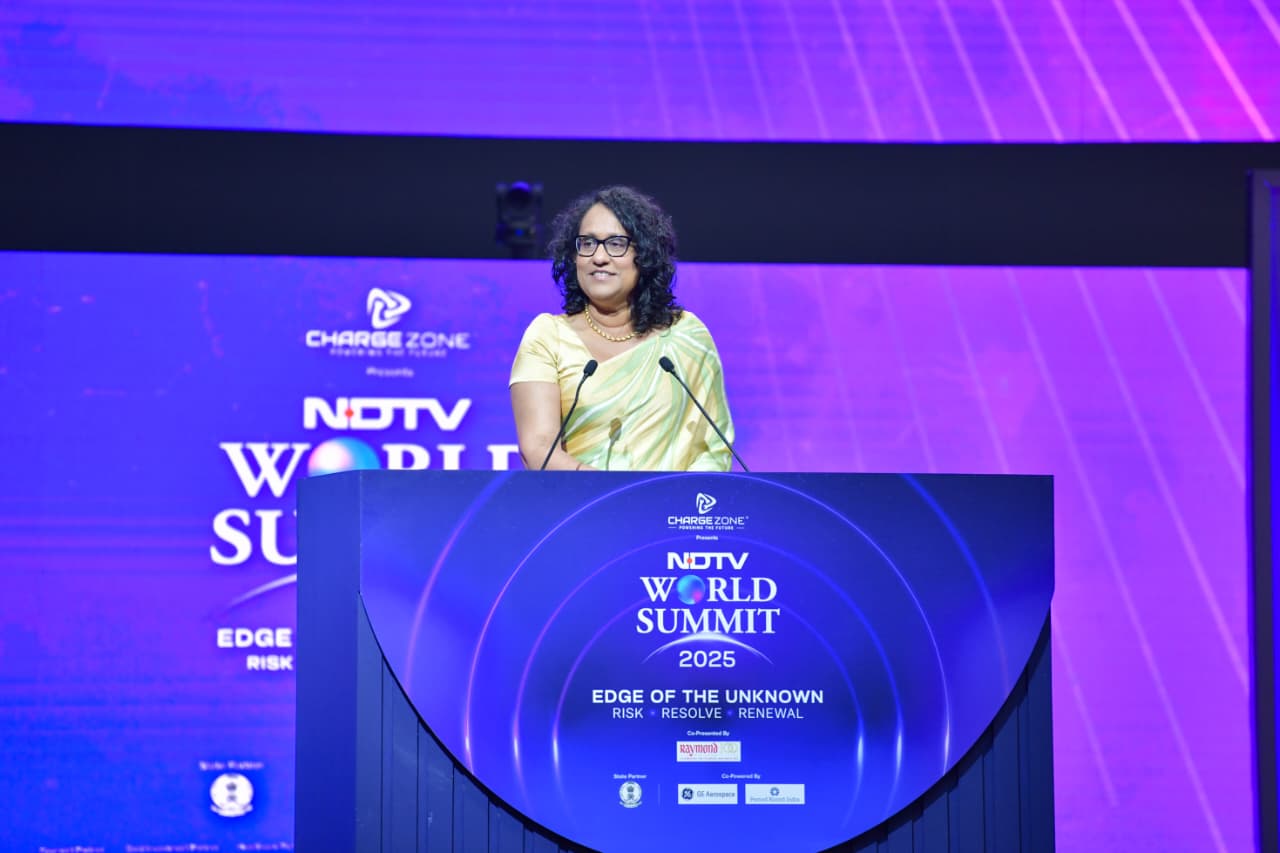
Optics alone are not policy, but in South Asia, familiarity can lower transaction costs, and Amarasuriya’s performance signaled a comfort with India’s public square.
Prime Minister Amarasuriya’s focus in China was practical cooperation, ports, agriculture, digital and green infrastructure, tourism, and law enforcement, things Colombo needs to cut its import bill, raise productivity, and restore credibility with lenders and voters. In India, her focus was on showing that Sri Lanka was comfortable in mingling with the Indian elites and that it understood Indian sentiments.
This does not mean the Amarasuriya’s India visit has eliminated friction. Of course there are many issues to iron out with both countries. Some of the issues with China are the direct result of Indian pressure. For example, in late 2023, Sri Lanka imposed a moratorium on foreign research vessels visiting its ports due to continuous India pressure against the arrival of Chinese research vessels. Sri Lankan universities depended on partnerships with China for marine research. For almost two years, Sri Lankan students have been deprived of acquiring valuable experience in an international research setting with access to cutting-edge technologies. On the other hand, thousands of Indian fishermen, who use destructive fishing techniques, poach in Sri Lankan territorial waters, depriving the country of millions of dollars and endangering the livelihood of thousands of fishermen. The issue was discussed during Amarasuriya’s visit, but no one expects a solution anytime soon. Colombo has no effective method of stopping Indian fishermen and New Delhi sees no reason to stop its fishermen from poaching in Sri Lankan waters. On the other hand, IMF conditions on Sri Lanka, especially on tax concessions, have delayed the implementation of key agreements with China. The $3.7-billion deal with Sinopec is in limbo as the country can no longer provide tax concessions the Chinese want. Investments in the Port City have stalled due to the same reasons.
In the end, the value of Amarasuriya’s China-India shuttle diplomacy will be judged not by photo-ops but by whether it takes Sri Lanka closer to a more resilient economic and security posture. Balancing Beijing’s technology and financing with New Delhi’s proximity is not only sensible statecraft, but the only option available to Sri Lanka if it wants to develop, while protecting its sovereignty. If Colombo can convert ties with Beijing and Delhi into measurable domestic gains, faster ports, cheaper and cleaner power, stronger law enforcement, and higher-value tourism, the government could lay the foundations of a real economic recovery. Sri Lanka cannot control the temperature between its two largest partners, but it can control its own predictability, competence, and integrity. That ultimately is how a small state like Sri Lanka can turn great-power rivalry into national benefit.
By Rathindra Kuruwita
(Source - Diplomat)
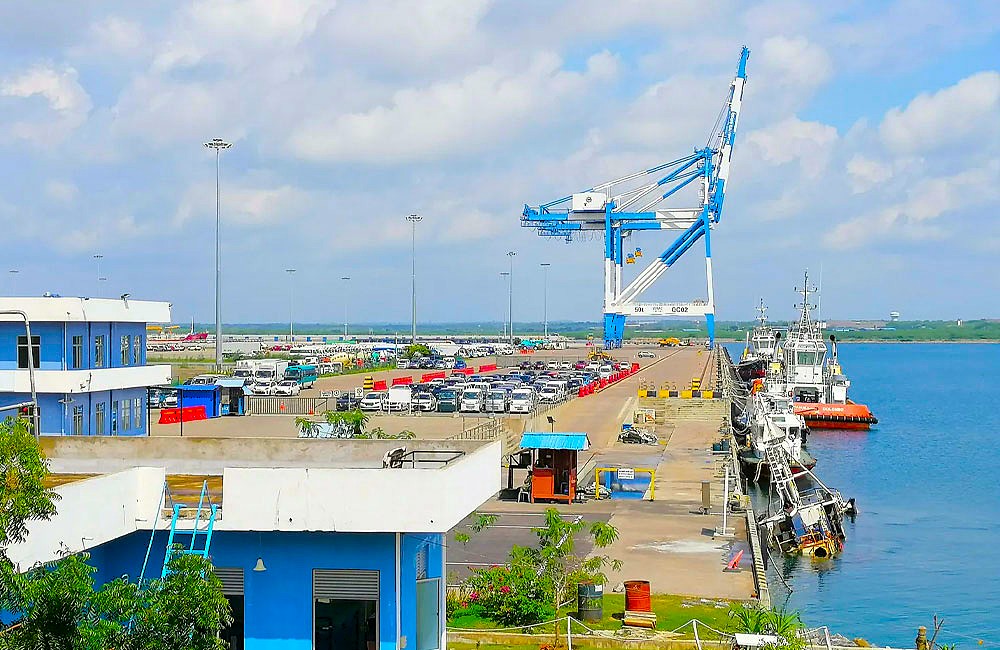
Sri Lanka’s Dormant Port Firm’s US $19 Million Debt Haunts the State
Once envisioned as a vital arm of Sri Lanka’s maritime future, the Magampura Port Management Company (Private) Limited (MPMC) now stands as a stark reminder of how poor planning, weak oversight, and delayed accountability can sink state ventures into deep financial waters.
Formation and Purpose of MPMC
Established on July 5, 2013, as a subsidiary of the Sri Lanka Ports Authority (SLPA), MPMC was tasked with managing operations at the Hambantota Port later renamed the Magampura Mahinda Rajapaksa Port.
The company began functioning as a licensed fuel supplier under the Ceylon Petroleum Corporation, importing and storing fuel for re-export to international vessels. In 2014, it secured a hefty US $24 million loan from a private bank, guaranteed by the SLPA, in a bid to build a lucrative bunkering business.
Operational Collapse and Mounting Losses
But the dream was short-lived. A global oil price crash and operational inefficiencies soon turned MPMC’s high-stakes fuel venture into a financial nightmare.
By 2017, losses had piled up, operations were suspended, and the company’s financial position had collapsed. As of 2023, an estimated US $18.8 million about Rs. 6.8 billion remains unpaid, with interest swelling the debt further.
The loan default led to two court cases filed in 2020 against both the company and the Ports Authority, while liquidation proceedings only began in June 2022 nearly five years after operations ceased.
Audit Findings and Governance Failures
Auditor General’s reports reveal a grim picture of mismanagement: failure to verify fuel stocks, missing bank confirmations, and no clear action plan to recover losses or repay the loan. MPMC recorded a negative net-asset position of Rs. 2.79 billion by 2018, with accumulated losses of Rs. 2.87 billion.
Yet, despite these warning signs, state authorities allowed the company to remain dormant, draining public funds and credibility.
“The collapse of MPMC represents a breakdown in corporate governance and financial accountability within the Ports Authority’s oversight structure,” a senior official at the Ministry of Ports and Shipping admitted, speaking on condition of anonymity. “It is a costly lesson on how not to manage state-owned subsidiaries.”
The repercussions extend beyond balance sheets. The Hambantota Port touted as a strategic maritime gateway—continues to battle public skepticism over its profitability and management after being leased to a Chinese joint venture in 2017. The dormant MPMC only adds to that shadow, raising concerns about how state-backed projects are planned and monitored.
The Cautionary Legacy of MPMC
Analysts warn that this failure could deter future investors and complicate Sri Lanka’s efforts to attract private participation in port and logistics infrastructure. “The problem wasn’t the port it was the execution. You can’t run a billion-dollar asset with a short-term business mindset and no risk safeguards,” said a former SLPA director.
As liquidation drags on, MPMC’s legacy remains a cautionary tale. It underscores the urgent need for the government to impose stronger financial discipline on its enterprises, ensure swift closure of loss-making entities, and align subsidiary operations with national strategic goals—before another “dormant” company silently drains the public purse.
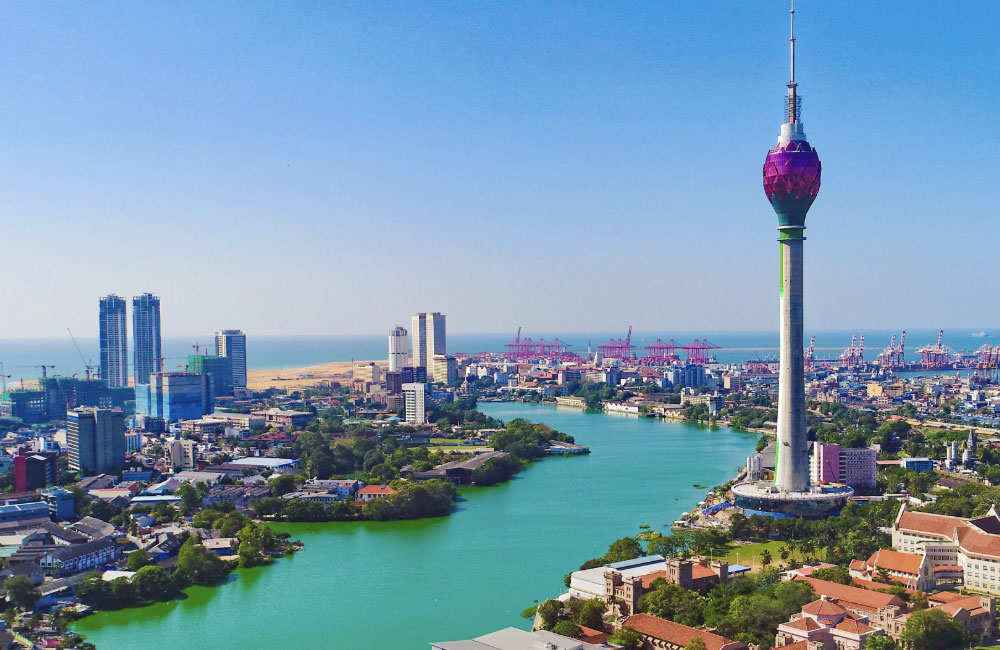
Sri Lanka’s opportunity in global mobility and investment migration
In today’s world, where mobility defines influence, Sri Lanka finds itself at a crossroads. According to the CEOWORLD magazine’s Global Passport Power Ranking 2025, the country currently sits at 89th place, on par with Burundi and only eleven spots ahead of North Korea. That ranking underscores both a challenge and an opportunity.
Sri Lankan passport holders require visas for 141 destinations worldwide. Compare that with Singapore’s 23 visa requirements or the United Arab Emirates’ 19, and the gap is striking. Pakistan and Bangladesh fare worse—153 and 148 visa requirements respectively—but Sri Lanka remains far from the global elite.
The absence of visa-free access to the European Union, the United Kingdom, Canada, and the United States further limits Sri Lankans’ global mobility. For executives, investors, and professionals, this restriction hampers not just personal convenience but also cross-border business opportunities.
“Sri Lanka is not visa-free to Europe, the UK, Canada, or the US. It doesn’t rank in the top tier of passports. However, the power of the passport can be increased,” explains Caroline Mtr., JD, Esq, Chief Economist & Executive Director of Global and Strategic Initiatives at CEOWORLD magazine.
She notes that with carefully designed investment migration programs, countries can enhance global mobility for citizens while attracting much-needed capital. For Sri Lanka, such reforms could transform its passport from a limiting factor into a strategic asset—strengthening economic resilience and opening new opportunities for investors and global citizens alike.
The Global Benchmark
The Global Passport Power Ranking sorts passports by their Mobility Score (MS)—a composite that includes visa-free access, visa-on-arrival options, electronic travel authorizations (eTA), and expedited eVisa processes. The higher the MS score, the greater the global mobility.
At the very top sits the United Arab Emirates, with visa-free access to 133 countries, plus 46 more via visa-on-arrival, eTA, or eVisa. Stability, visionary policymaking, and a currency board–like monetary system make the UAE an investment magnet and a mobility powerhouse.
Sri Lanka, meanwhile, struggles with monetary instability—critics point to excessive money printing, rate cuts, and exchange controls that have triggered repeated currency crises. Combined with heavy outmigration (often through unofficial channels), the situation presents both risk and urgency.
Investment Migration: A Strategic Lever
CEOWORLD magazine has long advised governments on how to enhance passport strength while simultaneously attracting investment. The key tool? Investment migration programs—structured pathways to citizenship or residency in exchange for capital inflows.
“Stable countries, especially those with low tax rates, can attract foreign investors through investment and residency schemes,” explains Caroline. “We propose investing in citizenship and residency schemes for foreign investors, enabling them an extra citizenship in case of insecurity in their home country, to be able to relocate or to travel to a country like Sri Lanka, which their own initial passport does not allow them to do.”
Residency in Sri Lanka could appeal to investors who see strategic tax benefits or want to establish a base in South Asia. The island nation’s unique geographic position—straddling key Indian Ocean trade routes—could also give it a competitive advantage.
Still, Sri Lanka would be entering a crowded field. Singapore, Dubai, and Hong Kong already dominate with low taxes, investor-friendly frameworks, and globally respected passports. To attract serious investors, Sri Lanka must carve out a unique niche.
Targeting New Demographics: Retirees & Global Citizens
Sri Lanka stands at a crossroads, with the dual challenge of improving its global passport ranking and attracting foreign investment. For a nation navigating economic uncertainty, the path forward may lie in a strategy already embraced by many forward-looking economies: investment migration programs.
According to Prof. Dr. Amarendra Bhushan Dhiraj, CEOWORLD magazine’s Executive Chair, CEO, and Editorial Director, Sri Lanka has a genuine opportunity to reposition itself on the global stage.
“Sri Lanka’s passport ranking today reflects limited mobility, which restricts both citizens and investors. By carefully designing and implementing residency and citizenship-by-investment programs, the country can strengthen its global standing while simultaneously securing much-needed foreign capital. This dual benefit—enhanced passport power and capital inflows—can become a cornerstone of Sri Lanka’s long-term growth strategy.
To improve its ranking, Sri Lanka must engage in bilateral agreements with key economies, ensuring broader visa-free access for its citizens. Parallel to this, structured investment migration schemes can be developed to channel foreign capital into priority sectors such as real estate, agriculture, and infrastructure. A program tied to flagship projects like Colombo Port City could immediately attract high-net-worth individuals seeking second residency or citizenship options.
Global investors today are not just looking for mobility; they are seeking stability, lifestyle advantages, and tax efficiencies. Sri Lanka can position itself as a strategic hub in South Asia by offering transparent, credible, and competitive pathways to residency. With the right governance, due diligence, and incentive structures, Sri Lanka could rival established destinations that already dominate this space.
Improving passport strength is not merely about travel convenience. It signals to the world that a country is open, stable, and globally integrated. Coupled with a well-executed investment residency program, Sri Lanka can create a virtuous cycle—enhancing its international reputation, attracting foreign direct investment, and offering citizens and investors alike greater global access.”
For Sri Lanka, the stakes could not be higher. A stronger passport and a credible investment residency framework would not only bring in capital but also restore confidence, transform the nation’s global image, and unlock a new era of economic opportunity.
Investment residency programs are not just about entrepreneurs and hedge fund managers. Countries across Asia—from Thailand to Malaysia—have successfully targeted retirees looking for cost-effective yet high-quality living options.
“The same can be said for people who may want to relocate while on a retirement scheme, similar to those who flock to Thailand or Malaysia,” Caroline notes.
For Sri Lanka, this could mean positioning itself as a retirement haven for high-net-worth individuals (HNWIs) seeking tranquility, cultural richness, and favorable tax treatment. A carefully designed program could tap into a multi-billion-dollar global market of retirees seeking new lifestyles abroad.
Sri Lanka’s Debt Crisis and the Investment Imperative
Sri Lanka is currently navigating a severe debt crisis, with limited fiscal flexibility. According to Prof. Dr. Amarendra Bhushan Dhiraj, CEOWORLD magazine’s Executive Chair, CEO, and Editorial Director, investment residency programs could serve as a lifeline.
“Sri Lankans could also benefit from such programs. With Sri Lanka in a debt crisis, investment residency schemes could help the country get funding,” he said.
The opportunities lie in real estate, agriculture, and the ambitious Colombo Port City project. By structuring these sectors into residency or citizenship-by-investment programs, Sri Lanka could unlock fresh streams of foreign capital.
Real Estate: From Port City to National Potential
Real estate development is a natural candidate for investment migration. Around the world, programs often allow foreign investors to purchase property in exchange for residency rights.
“If a property developer has ideas for projects in Port City that they would like to bring to market, we could help them with that and structure their project as part of the country’s citizenship by investment program for foreign investors,” Caroline explained.
This model has worked elsewhere. From Portugal’s Golden Visa to Greece’s property-linked residency schemes, foreign capital has flowed in, creating new growth engines for real estate, hospitality, and infrastructure.
Agriculture: A Modernization Play
Beyond real estate, Sri Lanka has untapped potential in agriculture. The country’s fertile land and favorable climate offer natural advantages, but access to modern technology remains limited.
“From my observation of the agricultural sector, there’s a lack of access to the latest technology. I think that could be an avenue for the government to look at to direct funds into,” Caroline said.
By integrating agriculture into residency programs—whether through agri-tech investment, export-oriented farms, or climate-resilient projects—Sri Lanka could attract both capital and expertise.
Competing on the Global Stage
Sri Lanka is not alone in pursuing this path. Global competition for mobile wealth is fierce. The success stories—Dubai, Singapore, and Hong Kong—share three critical traits:
• Low or competitive tax regimes • Strong global mobility through powerful passports • Stable, investor-friendly political and economic environments
For Sri Lanka, achieving all three will be challenging but not impossible. A carefully structured program, combined with genuine reforms in fiscal policy and governance, could transform the country’s position in the global wealth migration landscape.
Executive Takeaway
Sri Lanka may rank near the bottom of the global passport hierarchy today, but its story is not static. By embracing investment migration programs, the nation could enhance passport strength, attract fresh inflows of foreign capital, and position itself as a strategic hub in the Indian Ocean.
For investors, the appeal would be twofold: a potential tax advantage and access to one of Asia’s most strategically located markets. For Sri Lanka, the payoff could be transformative—unlocking growth in real estate, agriculture, and infrastructure while stabilizing its fragile fiscal outlook.
The challenge is urgent, but so is the opportunity. If Sri Lanka takes decisive action, its passport could become more than a travel document—it could evolve into a gateway for global capital and economic revival.
(Despina Wilson - CEO World Magazine)
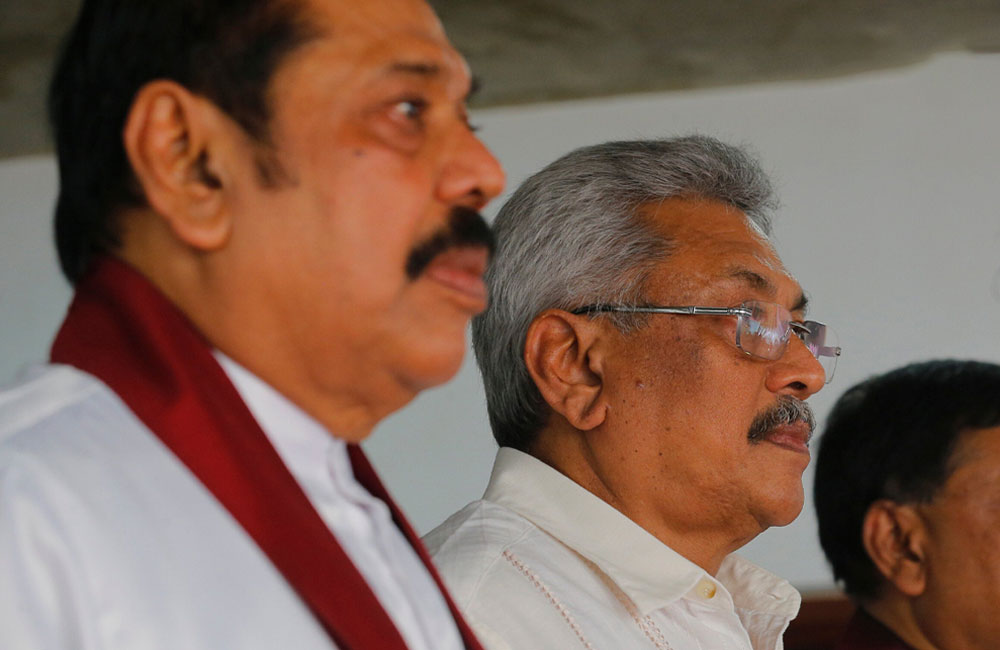
Rajapaksa-Era Defence HQ Project Mired in Costly Irregularities
The ambitious construction of the Akuregoda Defence Headquarters Complex, intended to serve as the centralized hub for Sri Lanka’s Armed Forces and Ministry of Defence, has become emblematic of complacency, mismanagement and unquantified losses running into hundreds of millions.
Origins and Political Context
The roots of the project trace back to decisions made while Gotabaya Rajapaksa served as Secretary to the Ministry of Defence and Urban Development and continued into his presidency, revealing a troubling blend of strategic overreach and governance failure.
Initially envisioned as a means to free prime land in Colombo and consolidate defence administration, the headquarters complex was launched in 2011.
Early Implementation and Emerging Irregularities
Under the Rajapaksa era, it gained momentum but also became entwined with controversy. A Cabinet-appointed investigation found that consultancy fees and firm selections were improperly handled, with large payments allegedly made without full oversight.
Local reports said a payment of Rs 600 million had been made in excess to a consultancy firm in 2016 during the project’s early phase.
Procurement and Contract Failures
Fast-forward to recent audit findings: For the granite-tiling contracts alone—awarded despite guideline breaches three procurement tasks worth Rs 927.66 million were all given to a single contractor, sidestepping required pre-qualification of bidders.
Four extensions increased the contract period threefold and still the work remained unfinished as of 31 December 2023. On top of this, two suppliers submitted 19 claims for extension-of-time (EOT) amounting to Rs 837.5 million and US $3.68 million, placing a significant contingent liability on the state.
These anomalies matter not just as isolated procurement failures but because they point to deeper structural issues: lack of meaningful oversight, scope creep, and poor alignment with strategic needs. The state’s decision to concentrate all branches of the military into a closely-packed complex despite expert warnings of security vulnerability reflected inadequate planning at the outset.
Fiscal Implications and Structural Weaknesses
The economic and financial implications are stark. Unfinished contracts lock up capital while leaving the necessity of ongoing operational costs or alternative arrangements. Contracts ballooning in cost directly drain public resources with little visible return yet.
The investment in the project has diverted funds that could have been deployed elsewhere in an economy already under stress and seeking foreign investment. Moreover, the reputational damage fuels investor wariness: if high-profile defence infrastructure can flounder, what message does this send about governance standards and project execution to the private sector?
Policy Lessons and the Way Forward
Crucially, this project has become a micro-cosm of the Sri Lankan state’s fiscal fragility: fixed assets built on Promised Land sales (such as in the early 2010s) and off-balance-sheet liabilities now shifting into public domain. The construction of the new military HQ was linked to land sales of the old Army headquarters and the idea was to use those proceeds rather than traditional budget allocations.
But when oversight faltered, cost escalated and benefits lagged, the outcome has been fiscal stress rather than strategic advantage.
For Sri Lanka, the way forward must include a rigorous forensic audit of the defence HQ project, revision or cancellation of persistently lagging contracts, and a recalibration of the way large state-infrastructure projects especially in strategic sectors are conceived, procured and implemented. Without such corrective action, the heavy price paid in opportunity cost, public funds and investor confidence may yet deepen the country’s economic vulnerability.

The Crisis and Anura Kumara
" are ready to take up the leadership of the country”, declared Anura Kumara Dissanayake, leader of the Jathika Jana Balavegaya (National People’s Power - NPP) and the JVP at the Convention held on the 20th December. He said so in a tone to impress the audience that it was the latest strategy that his party was going to adopt. In this effort, he made an attempt to paint a picture that his party, unlike the other two parties, the UNP and the SLFP, has no previous experience in the rule of the country and therefore, the JVP is different from the other two mainstream parties, and could claim for an uncorrupt heritage. There is some truth in what he says, but in fact, there are some flaws in the assertions that he has underlined.
History of the JVP in brief
The JVP is now 57 years old; its origin can be traced back to 1964. Its parliamentary history is also as old as 27 years. It can be considered as a party that has attempted to seize the ruling power using various tactics, not just one. In 1971, it tried to seize power through an armed insurrection. In 1982, it contested the presidential election, not to win, but to deprive the SLFP of its place and appropriate it upon their party. Later, it assumed an underground political path under the cover of the ban imposed on the party in 1983, and launched a horrendous uprising in 1987-89 to seize power. In 1994, the JVP abandoned the violent path skillfully, and switched over to the Parliamentary system following the defeat of that uprising.
Then in September 2001, the JVP entered into a Memorandum of Understanding (MOU) with the United Front Government to form a probationary government. Again in January 2004, it entered into an Electoral Alliance called the United People's Freedom Alliance with the United Front. Consequently, having contested the election under the alliance, it was able to increase the number of seats it had in the parliament from 16 to 39. It was able to secure four powerful ministerial portfolios in the coalition government headed by President Chandrika. The JVP withdrew from the coalition government when the President decided to absorb a group of defectors from the UNP to the government rather than depending solely. Again the JVP supported Mahinda Rajapaksa at the 2005 presidential election. At the presidential election 2010, JVP was instrumental in bringing Sarath Fonseka to the fore as the common candidate to defeat Mahinda.At the 2015 presidential election it indirectly supported the program launched to defeat Mahinda.It also secured the position of Chief Opposition Whip in Parliament, with the patronage of the Yahapalana regime, without having a legal entitlement to it. The JVP contested the Presidential Election 2019, not to win it, but as a means of increasing its power in parliament. But it failed to achieve the desired objective. At present, in view of the apparent confusion in the right-wing political camp in the opposition, the JVP seems to believe that it might stand a chance of securing the ruling power at the next election.
The ideological milieu
It seems that the JVP has devised a special line of reasoning to prepare the ideological background to achieve this goal. Accordingly, the country has been destroyed by the two corrupt political parties that had ruled the country alternately. The JVP is not as corrupt as those political parties and also has not ruled the country like them. Therefore, they seem to believe that they possess the legitimate right to save the country that has been destroyed by both groups. But it goes without saying that things in the country are not as simple as they think. It is not only the ruling parties that influence the ideological milieu of a society; there are other groups and forces also that influence it. It was not a ruling party, but an ideological school of thought that has socialized the belief that the kidney disease prevalent in the Rajarata region has been caused by the use of agro-fertilizers and agro-chemicals. Also, the episode of drugs alleged to have been introduced by Muslims to make Sinhala women sterile was fabricated and socialized by a similar group. Although anti-Tamil racism has now been abandoned, the JVP has played a major role in inculcating a progressive-looking anti-Tamil racist vision in the minds of the Sinhala Buddhists community. The principle of violent struggle and the practice adopted to launch it could be considered as an important factor that has impacted the state of current decay, bankruptcy and failure of Sri Lanka. Although theft is a serious crime, it can be said that the damage inflicted on society by the destroyers of wealth is greater than the damage caused by the thieves. Even stolen wealth enters the circulation of money in various ways. But the wealth that is destroyed once does not enter the circulation like that. The devastation wrought on Sri Lanka by violent and rebellious movements is enormous. It can be said that not only fraud and corruption, but also destruction of wealth has contributed to the current crisis in Sri Lanka.
The JVP may have achievements to be happy about in its parliamentary history; but it is important to note that it has not been able to become a model that could be emulated by the political parties in Sri Lanka. The parliament was in a state of corruption when the JVP joined parliamentary politics. Plunder of public property had become a significant and permanent feature of state administration following the establishment of the presidential system in 1978. The incumbent presidents used to adopt unlawful means to enable their team of MPs to amass wealth in order to keep them loyal and contended. In this process, the presidents allowed the MPs to transact business with the government. As a result, some of them have acquired valuable government land and become planters, some have become large contractors, and some others licensed businessmen. Liquor licenses were issued through MPs during the reign of president Chandrika. So, a large number of MPs have become tavern owners. Such practices can be considered as serious offenses punishable by depriving the MPs involved in them, of their positions and even civic rights. But the presidents in power prevented the law from being enforced against them. This situation has led to corrupt Parliament to a massive extent. Although the JVP had the potential to make a vehement protest against this ugly practice in Parliament and change the situation, for whatever reason, it refrained from talking about it. In doing so, it has deprived itself of the opportunity to gain greater recognition among the people.
What is the solution?
Although the general conduct of the JVP MPs may be relatively better than that of the MPs of other political parties, the policy they have followed in regard to duty free vehicles is blemished. The system of giving duty free vehicles to MPs in such a way that they could sell them and make money can be considered as an illegal and corrupt system that gives the MPs undue privileges. It can be considered as a practice contrary to the accepted democratic parliamentary traditions, and also one that has caused a huge financial burden on the country. Later, the practice of offering duty free vehicles had to be extended to higher ranking officials in the public service also, because those who initiated it wanted to justify the system maintained for the Members of Parliament. In the end, it became a wasteful and corrupt system incurring an unbearable burden on the country. Now, not only the politicians, but also the government officials who fall into higher echelons or supra category of public administration use luxury cars costing over Rs. 30 million and incurring highest cost of fuel consumption. It can be said that the corrupt system of offering duty free vehicles to MPs and public servants has also contributed to the state of bankruptcy of the country. JVPs claim that “we haven’t kept the money realized from the sale of duty free vehicles with us except that we have given them to the party fund” will not rectify the error. The money that has gone to the JVP party fund is nothing but the money that should have gone to the government treasury. The JVP cannot exonerate itself of this fault on account of its toleration of such a wasteful and destructive system whilst at the same time being a party to it as well.
The speeches made at the convention held on the 20th do not show that the JVP has a profound analysis of the crisis facing Sri Lanka and how to overcome it.Also, the pamphlet titled "A Quick Approach to Overcome the Crisis" circulated on the occasion of this convention too, does Wenot offer an objective and insightful analysis of it. What is their true analysis of the crisis facing Sri Lanka? What are the solutions they offer to solve the crisis? There is another major question to ask. What do they intend to do if there is a collapse of the state before the next presidential election? So far, only Champika Ranawaka and Ranil Wickremesinghe have shown some sensitivity to this question. What will happen if the state collapses with the collapse of the government, before the next election?
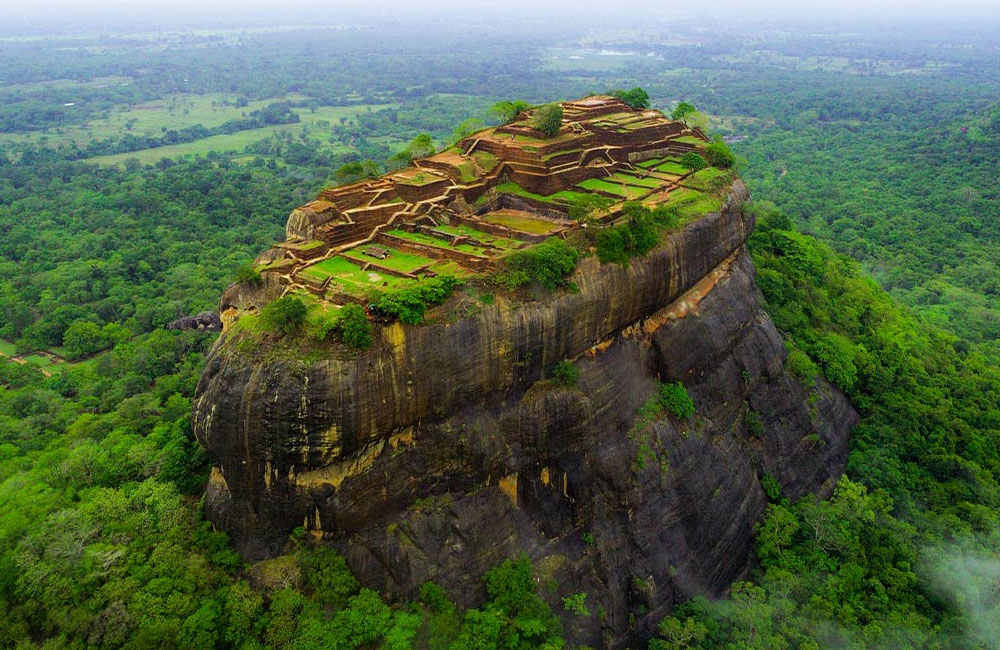
Sri Lanka begins process to list national heritage sites, draft new laws
The National Heritage Division of the Ministry of Cultural Affairs has initiated the process of identifying and listing Sri Lanka’s national heritage sites, along with drafting new legislation to protect them.
An expert committee has been appointed to oversee the initiative, according to Additional Secretary of the Division, Ms. Sujeewa Palliyaguruge.
She noted that while the country’s national heritage has been previously gazetted under the Archaeology Act, no specific criteria had been established for identifying or categorising such heritage.
The newly appointed committee has decided to classify national heritage into tangible and intangible categories and to develop a distinct criteria for each.
As Sri Lanka has not yet officially compiled a list of its national heritage sites, the Ministry’s current focus is on identifying and naming such sites across the country. In addition, a national heritage policy has been drafted and is expected to be submitted to the Cabinet for approval soon.
Ms. Palliyaguruge further stated that UNESCO has extended financial support for the project and that the Division is also reviewing the existing Archaeology Act with plans for revisions.
In 2022, then Minister of Cultural Affairs Vidura Wickramanayake obtained Cabinet approval to begin preparing a national heritage list, marking the first step toward the current initiative.
(source - Dailymirror)
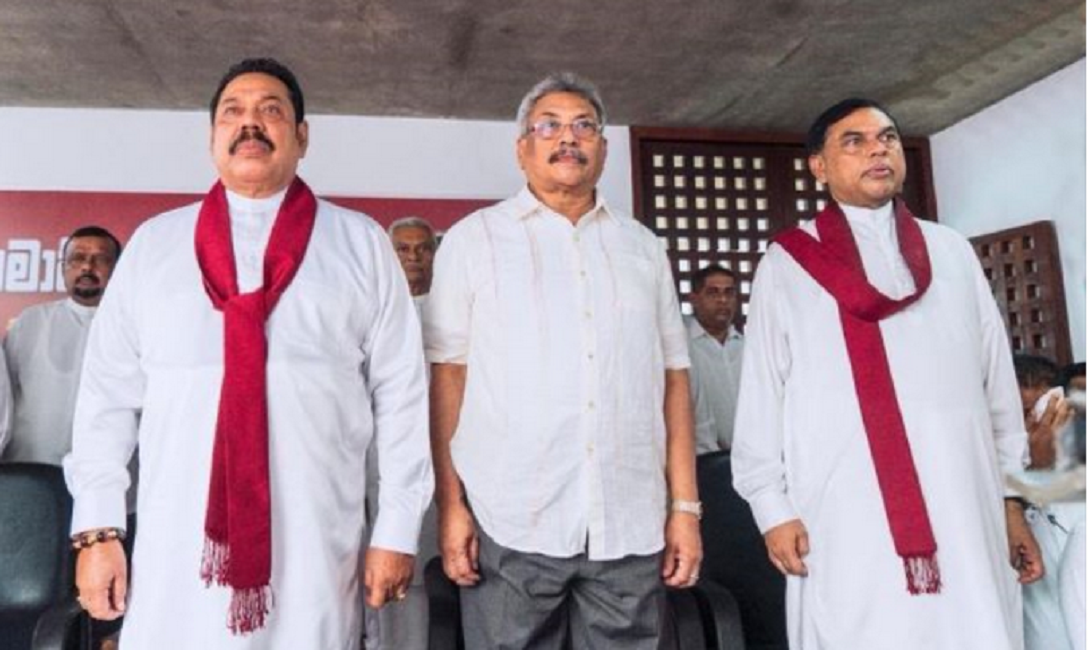
Rajapaksa regime under multiple pressures
By P.K. Balachandran
The regime of the Rajapaksas, established in November 2019 and consolidated in August 2020, is facing multiple problems, both domestic and external, economic as well as political.
Page 2 of 12